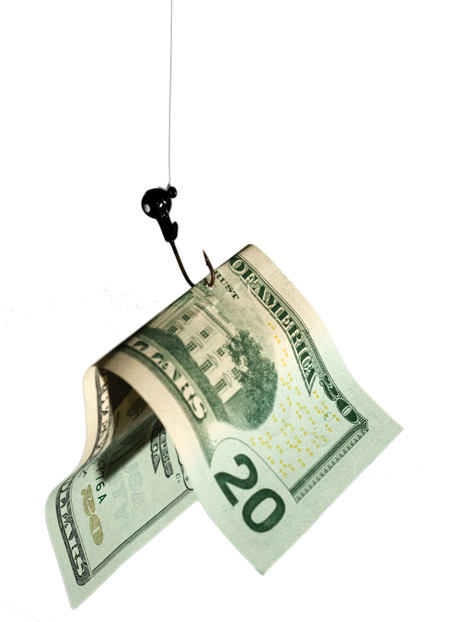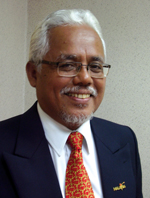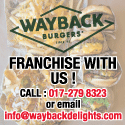Since the modern franchising concept came into being about 50 years ago, it provided opportunities for would-be entrepreneurs without the knowledge of operating and running a business to participate in a business activity. These entrepreneurs are willing to put in their savings to realise their dreams of owning a business based on promises of earning lucrative returns.

Scamming artists notice the willingness and eagerness of entrepreneurs to invest money in establishing an income stream for them. This eagerness or greed (to be more direct about it), creates a situation that it is suitable for the scamming artists to ensure that the investors are blind to the reality of the situation. This is further made easier when the business model used is not clearly and easily understood.
Some of the scamming artists have used multiple business models that include:
- the traditional shop business model (the existence of a branded food and beverage retail outlet),
- the multilevel marketing model (member recruitment rewards and voucher based rewards and purchases) and
- the supply chain business model (the existence of central kitchen, logistics support etc.)
Nevertheless, ultimately it is a ‘money game’ for them. Such is the modus operandi for a recently reported café scam.
Probably after seeing the ‘greed’ in investors, a scheme is introduced to allow investors to purchase investment lots in the business with the promise of 5% returns monthly – that’s 60% return per annum. Now, this looks like a ‘ponzi scheme’ and definitely not franchising.
Franchising is seen as the entry mode into business by the common people who want to own a business. The scamming artists saw this as an opportunity to conduct their activities based on this ‘excitement’ in franchising as a model of doing business. The franchising model also allows the collection of money in the form of ‘franchise fee’ and this suits them very well… to collect money.
However it should be noted that the recent café scam is not a franchise business. The nearest thing to franchising is that this scam is operated under a company name that has the word ‘franchise’ in it. The business was not a registered franchise business as required by the Malaysian laws. It was just a company that has ‘franchise’ as part of its name. Clearly it is an effort to ride on the status of franchising as a strategy to attract and deceive investors. Here are a few pointers to help you spot a scam miles away.
Franchising Business Checkpoints
- Check with the Registrar of Franchise… if you are in Malaysia
In Malaysia, franchise businesses are required to be registered before they can offer franchises for sale. The requirements for registration include a business track record of not less than three years, existence of prototype outlets, franchise agreements with specific provisions, disclosure document in specific formats etc. Other measures are defined by the Franchise Act 1998 to regulate franchisors, master franchisees, foreign franchisors, franchisees to ‘foreign off-shore’ franchisors and franchise brokers.Alternatively one can also check with the local franchise associations for background information. In the same breath, registration as a franchise business or membership of a franchise association does not automatically guarantee its success. All businesses will have exposure to its own set of risks.
- Check the Business Model
A franchise business is based on a successful business. The onus is on the investor to check out how successful the business has been. Understanding of the sources of revenue, the costs involved in generating such revenues and consequently the levels of returns for the business and determining what should be acceptable to the investor.The business processes and the support infrastructure are also critical in ensuring the franchisees are well positioned to do business in order to gain market acceptance of the franchise business’ products and services.
- Check the Documentations and Support Capabilities
All franchisors must have the necessary documentation (franchise agreement, disclosure document, operating manual training manual etc.) and support capabilities to enable a franchisee to operate the franchise business. The support capabilities include the support for the franchisees to open and operate his new outlet and the support is provided on a continuous basis. A visit to the head-office, the prototype outlet and the support operations (central kitchen, distribution centres, logistics etc.) will give indications of a good/bad franchise system.Obtain expert opinions from professionals such as lawyers (to review the franchise agreement and disclosure documents) and accountants (to analyse the feasibility of the financial projections) before a decision is made.
Beyond these documentations and support capabilities, the franchisor is expected to have a philosophy of working and achieving success together by using the same business model, brand and business system.
Without the above, it means that the business is not ready for franchising.
- Check the Network of Franchisees
Franchisees are a good source of information on the credibility of the franchisor. One needs to absorb all the inputs with caution against franchisees that are unreasonable in their comments. Franchisees will be able to inform whether the franchisor has any record of litigation with franchisees; suppliers or the authorities.On the whole the franchisees will give a good picture of the viability of the franchise business. In the franchise environment, franchisor-franchisee relationship requires greater transparency, honesty and respect for each other as one is dependent on the other – at least for a period of time.
- Check Yourself – check against greed
Promises of very lucrative (sometimes ridiculous) returns should not automatically convince you to make a decision to invest. Franchisors in their eagerness to promote and sell their franchise systems may overlook some points and reinforce or overstate their other business strengths. Franchisees in their excitement and preference for a particular franchise systems may ‘hear’ these points but not ‘listen’ to the real messages.

In a true franchise business transaction, the potential franchisee is buying someone else’s business systems who are selling it in a package that includes brand and image, territory, business operating systems etc. In return the franchisee will pay amounts and charges that are stipulated in the franchisor’s registration details.
Regulations are introduced to control the conduct of franchisors and the potential franchisees to give protection to a certain extent for both parties.
In a scam environment, the potential franchisee may be faced with an aggressive marketing and selling approach with promises of big returns on your investments without having to work hard… just like the tagline used “makan pun dapat RM” (loosely and colloquially translated: eat also can make money) used by a scam outfit. However one cannot underestimate the creativity of these scamming groups in exploiting the ignorance and greed of their victims – more variations may come up later.
Hence the potential franchisee is advised to be extra careful as you may not have the skills and knowledge of a savvy businessman to evaluate the proposals presented to you. Second, third opinions may be necessary especially from experts to ensure that the potential franchisee is making the right decision.
Finally the investor/franchisees should be wary of their own force of hunger for success which may over-ride good judgment.

Marzuki Ahmad is the Managing Director and Principal Consultant of Franchise Channel (M) Sdn Bhd. He also sits on the Franchise Advisory Board, which is responsible in advising the Ministry of Domestic Trade, Co-operatives and Consumerism and the Registrar of Franchise on franchising matters.







